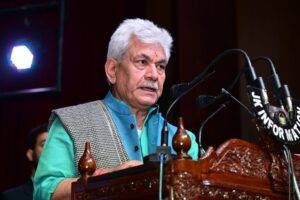Last Updated on December 3, 2020 at 5:04 pm
One of the major aftermath of the revocation of Article 370 was the adoption of five languages — Hindi, Kashmiri, Dogri, Urdu and English — as the official languages of J&K. On September 27, 2020, the President gave his nod and the Union ministry of law and justice notified about the same.
There are many languages spoken within the region of Jammu and Kashmir and they have also influenced the political undercurrents in the region. The exclusion of other languages than these five recognized languages caused protests among those who feel more connected to some other language.
In the 19th century, the collective region of the Jammu and Kashmir was created by merging diverse cultural and geographical units. The Kashmir Valley has its own distinct culture and language however, Ladakh incalculates Tibetan and Central Asian culture and ethnicities. Jammu is also culturally diverse.
in 1889, Urdu replaced Persian and became the de facto language of J&K. The introduction of Urdu changed things as they used to be. The Dogra rulers encouraged Urdu literates from Punjab to shift to J&K. This resulted in lack of job opportunities for the Kashmiri Pandit community which used to be the administrative class in the valley. They even used to send petitions to the rulers to discontinue this practice.
The lack of political institution officials in the J&K region also prevents the government from taking a well-informed step. In the last one year, many laws which were formed within this time period were amended.
If we count the number of speaker of a particular language, then Gojri and Pahari languages should also be included in the list of official languages as they have many speakers in both the sides of the LoC. Ignoring such claims by the government may fuel language wars in this region which is very sensitive. Moreover, even before a language is officially recognised, its effect on administrative efficiency is also thought. In India, once a language is recognised to be an official language, all official matter and possibly STEM (science, technology, engineering and mathematics) courses should be translated into the official languages.



